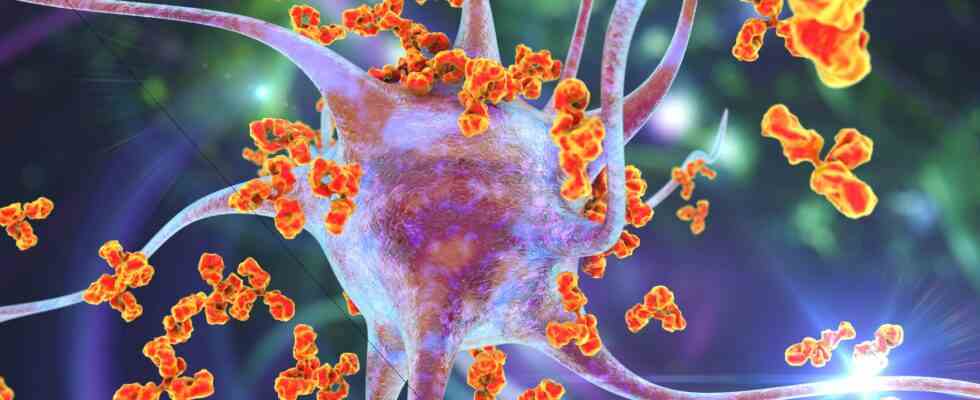Propionic acid promotes protection and regeneration of nerve cells
propionate is this Salt a short chain fatty acidwhich naturally im colon when dismantling fiber arises. A German research team has now found that propionic acid for the treatment of autoimmune diseases could be useful as they go to protection of nerve cells as well as to theirs regeneration contributes.
A working group of St. Josef Hospital Bochum showed in a recent study that propionate protect nerves and at hers help regeneration can. This could Treatment of autoimmune diseases be used. The research results were recently published in the renowned journal “PNAS“ published.
Propionic Acid Could Help Multiple Sclerosis…
The same research team had already shown in earlier studies that those affected with multiple sclerosis (MS) one lack of propionate exhibit. The researchers were also able to show that patients with MS can benefit from taking additional propionate.
… as well as at CIDP
The current work suggests that the substance can also chronic inflammatory demyelinating polyneuropathy (CIDP) could help. Symptoms such as sensory disturbances, muscle weakness and chronic pain are typical of this autoimmune neurological disease.
In CIPD, the covering of the nerve cells is broken down
The causes of the disease are considered to be insufficiently understood. However, it is known that immune system of the affected person attacks the nerves in the arms and legs. The insulating coating of the nerve cells, the so-called nerve sheath, is progressively broken down until the cells finally die.
“Currently available drugs are very expensive and mainly affect the immune system”explained dr Thomas Gruterwho along with dr Kalliopi Pitarokoili led the study. According to Grüter, nerve-protecting and regenerative therapies are not yet available.
Propionate helps protect nerve cells
However, that could change soon. As the team was able to demonstrate in cell cultures and in animal experiments, nerve cells die less frequently when propionate is administered and grow back more quickly. Overall, the nerve cells were better protected from the effects of propionate by the propionate oxidative damage protected.
Through the experiments, the working group also gained new insights into the underlying mechanisms of action of propionate. The substance binds to you receptorwho as FFAR3 referred to as. This can be found on the surface of nerve cells.
The binding stimulates the production of enzymes and proteins that help the cell to regenerate and protect itself from harmful influences. However, how propionate actually affects people with CIDP has yet to be tested in a clinical trial. (vb)
Author and source information
This text corresponds to the requirements of medical specialist literature, medical guidelines and current studies and has been checked by medical professionals.
Author:
Graduate editor (FH) Volker Blasek
Sources:
- Klinikum Bochum: Propionic acid in the intestine protects the nerve cells (published: 01/23/2023), klinikum-bochum.de
- Thomas Grüter et al.: Propionate exerts neuroprotective and neuroregenerative effects in the peripheral nervous system; in: PNAS (2023), DOI: 10.1073/pnas.2216941120, pnas.org
Important NOTE:
This article contains general advice only and should not be used for self-diagnosis or treatment. He can not substitute a visit at the doctor.

